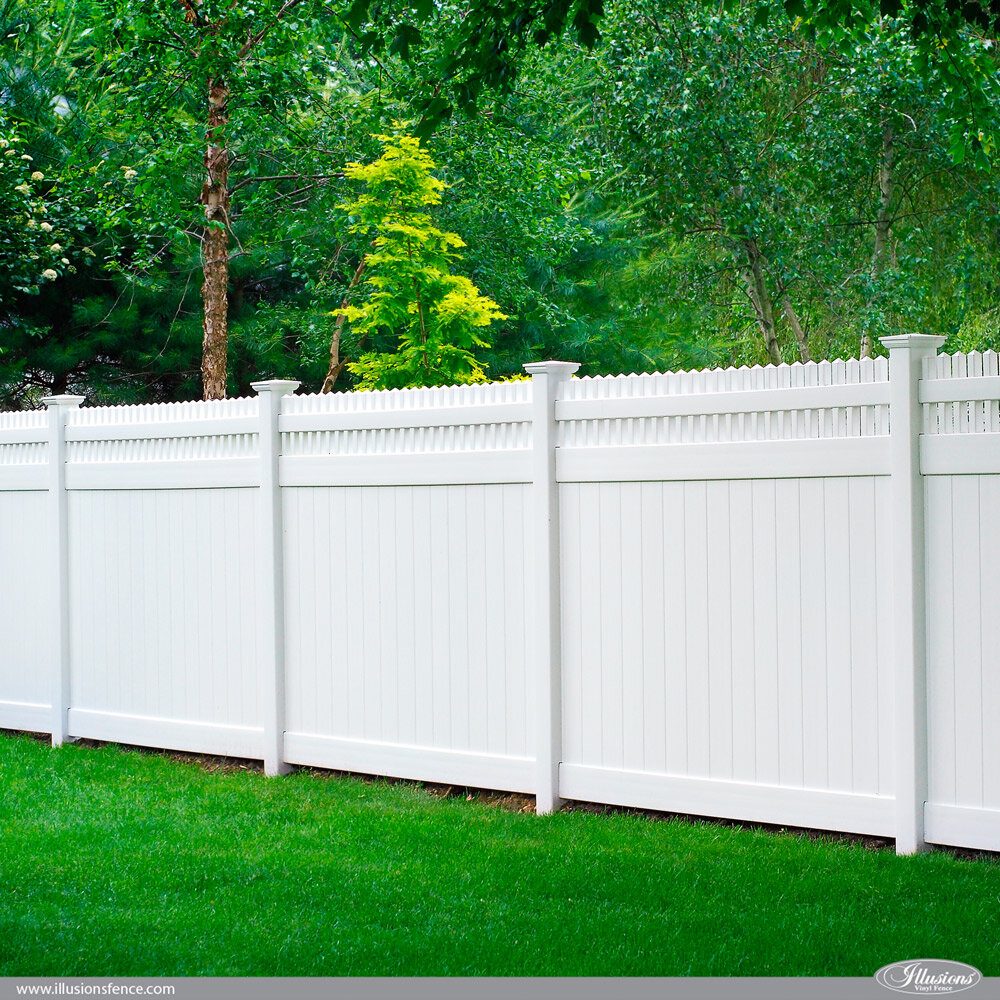All Categories
Featured

Choosing the right secure fencing product is essential for achieving the equilibrium of sturdiness, appearances, and performance that suits your home. Timber, plastic, and aluminum are prominent choices, each with distinct features that satisfy details requirements. Below's a thorough consider the advantages and drawbacks of these 3 materials.
Wood Fencing. Pros:. Classic Charm: Timber offers an all-natural, classic appearance that matches various building styles. Personalized: It can be repainted or discolored in a selection of design and colors. Economical: Wood fences are commonly cheaper ahead of time than vinyl or aluminum. Eco-Friendly: As a sustainable resource, timber is sustainable and biodegradable when sourced responsibly. Cons:. Maintenance-Intensive: Needs routine discoloration, paint, or sealing to shield versus climate and pests. Shorter Lifespan: Depending on the kind of wood and environment, it typically lasts 10-15 years. Vulnerability to Damage: Prone to deteriorating, warping, and termite damages without correct care. Timber is perfect for property owners who value aesthetics and agree to spend time and effort in upkeep to prolong its life.
Vinyl Fence. Pros:. Sturdy: Immune to parasites, rot, and climate, vinyl preserves its framework in extreme problems. Reduced Maintenance: Needs little upkeep past occasional cleaning. Long Life-span: Vinyl can last 20-30 years without considerable wear or damages. Flexible Layouts: Available in different shades, structures, and designs, consisting of choices that imitate timber. Disadvantages:. Expensive Installation: Vinyl fences are more pricey to set up compared to timber. Brittle in Cold Climate: Plastic can split in extreme chilly climates. Hard to Repair service: If damaged, entire areas may require replacement, which can be challenging to match. Plastic fencing is an excellent selection for those prioritizing durability and very little maintenance, also if it comes with a higher in advance price.

Light Weight Aluminum Secure Fencing. Pros:. Rust-Resistant: Light weight aluminum does not rust, making it ideal for moist or damp locations. Light-weight however Solid: Deals strength without being excessively heavy, which simplifies setup. Reduced Maintenance: Calls for bit greater than cleaning and periodic repainting. Durability: Aluminum fences can last for years without considerable degeneration. Stylish Layouts: Frequently made use of for ornamental purposes, aluminum includes sophistication to any type of home. Cons:. High Preliminary Expense: Light weight aluminum fencings are among the extra expensive choices. Restricted Personal privacy: Often created with open spaces, they don't block sights or noise. Prone to Damages: While tough, aluminum can be nicked or bent with hefty influence. Aluminum is best suited for those who desire a lasting, stylish fencing and do not require full privacy.
Making the Right Option. Each product has its weak points and strengths:

Timber is excellent for eco-conscious customers and standard appearances that don't mind maintenance. Plastic benefits homeowners seeking a weather-resistant, low-maintenance solution. Aluminum is a sturdy, decorative option for those that desire sophistication and long life. Consider your top priorities-- whether it's expense, maintenance, privacy, or appearance-- and seek advice from a secure fencing professional to select the material that finest satisfies your requirements. A well-selected fence will improve your residential or commercial property for years ahead.
Latest Posts
Elevate Any Kind Of Space with Elegant, High-Quality Location Rugs
Published Apr 19, 25
1 min read
Contact Montclare Auto Repair for Expert Help - Trusted Service Guaranteed
Published Apr 19, 25
2 min read
Full Circle Strategic Marketing - Elevate Business Strategies with Expert Solutions
Published Apr 19, 25
2 min read
More
Latest Posts
Elevate Any Kind Of Space with Elegant, High-Quality Location Rugs
Published Apr 19, 25
1 min read
Contact Montclare Auto Repair for Expert Help - Trusted Service Guaranteed
Published Apr 19, 25
2 min read
Full Circle Strategic Marketing - Elevate Business Strategies with Expert Solutions
Published Apr 19, 25
2 min read